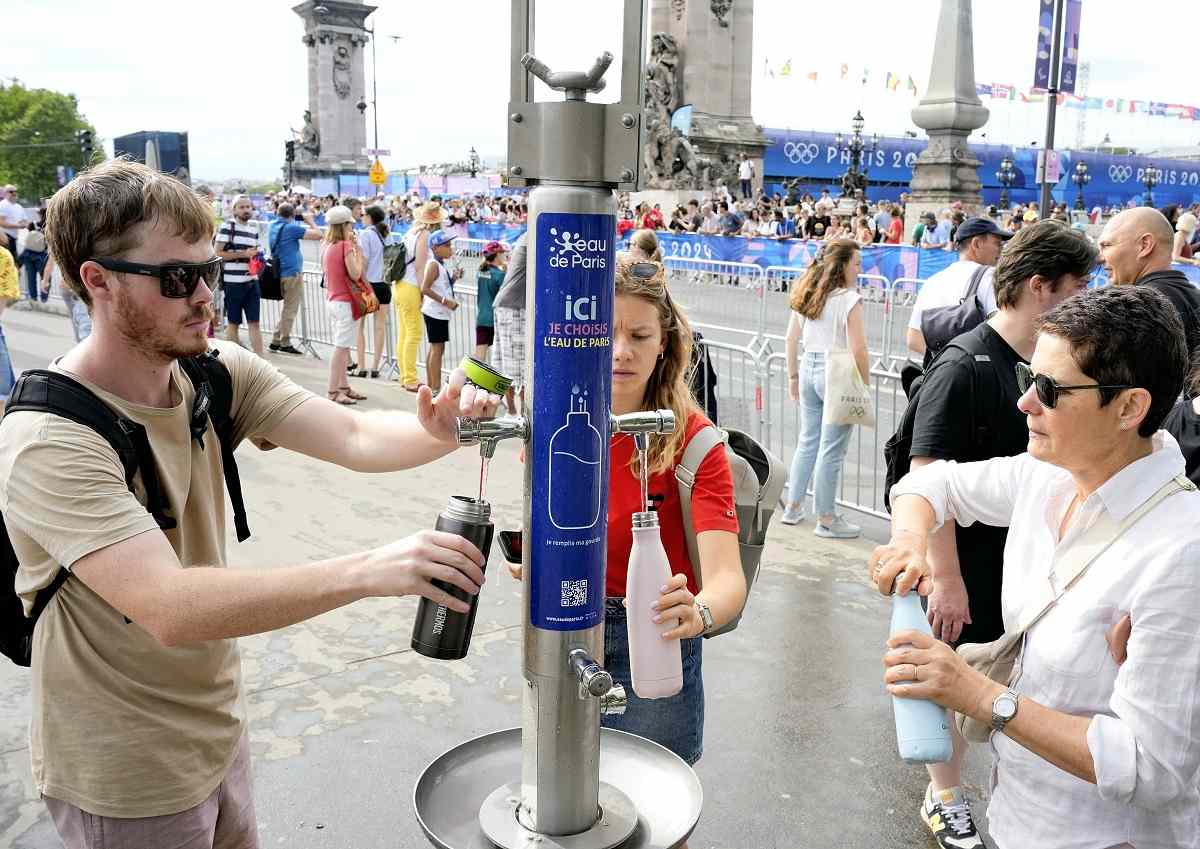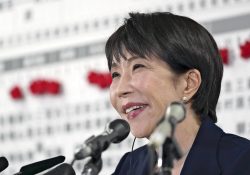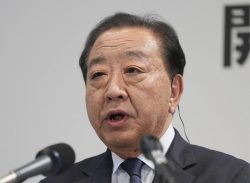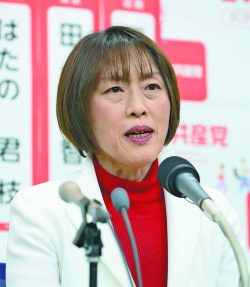Global Warming Casts Shadow over Future of Winter Olympics; IOC Presses Ahead with Reforms for Sustainability
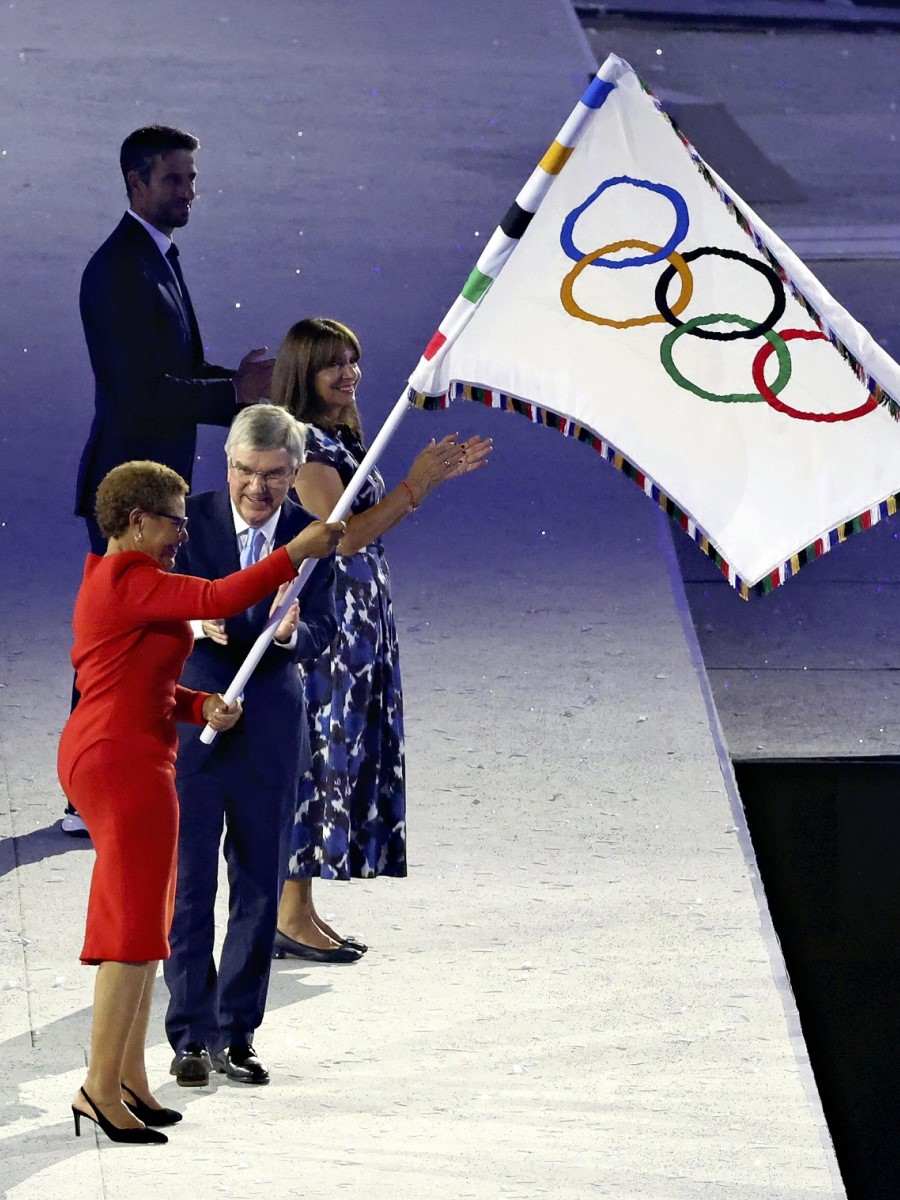
Los Angeles Mayor Karen Bass receives the Olympic flag from International Olympic Committee President Thomas Bach during the closing ceremony of the Paris Olympics in Saint-Denis, France, on Sunday.
16:59 JST, August 13, 2024
PARIS — Reform has become a vital issue for the International Olympic Committee, sparked by a strong sense of crisis that climate change is endangering the holding of Olympics in the future.
In autumn last year, the IOC made public a report that by 2040, only 10 nations would be able to host the Winter Games due to the impact of global warming.
Although the Summer Games are at less imminent risk, there are concerns that extreme heat will preclude the holding of such events as the marathon. Proposals have surfaced for changing the time of year when the Summer Olympics are held.
The cost of hosting a Summer Olympics far exceeds that of its winter counterpart, already surpassing the ¥1 trillion threshold — a fact not missed by critics.
To this end, the IOC is trying to promote measures to mitigate the effects of climate change while highlighting the appeal of creating a legacy, with the aim of boosting the significance of hosting the Summer Games.
At the closing ceremony in Paris, IOC President Thomas Bach lauded the recently completed Games as “the first Olympic Games delivered fully under our Olympic Agenda reforms: younger, more urban, more inclusive, more sustainable.”
The organizing committee for the next Summer Olympics, in Los Angeles in 2028, is also emphasizing sustainability.
In June last year, the committee revised its original 2017 plan for venues, switching about 10 events to existing facilities. That and other factors resulted in a reduction of more than $150 million (about ¥22 billion) from the budget.
The revised plan moved the canoeing and softball competitions to Oklahoma City, about 2,000 kilometers east of Los Angeles, emphasizing that using existing venues in other cities is in accordance with IOC guidelines.
The 1984 Los Angeles Games marked a turning point for the Olympic movement in terms of a shift toward commercialism.
The IOC now hopes to accelerate Olympic reforms in four years’ time by building on the achievements from the Paris Games and addressing issues that arose.
Top Articles in Sports
-
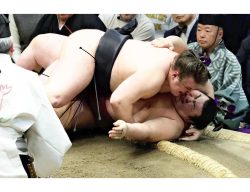
Aonishiki Tops Atamifuji in Playoff to Win New Year Grand Sumo Tournament in Ozeki Debut
-

Japan’s National Baseball Team Adds 11 Members to Participate in Upcoming World Baseball Classic (WBC)
-

Milano Cortina 2026: Olympics-Torch Arrives in Co-Host Cortina on Anniversary of 1956 Games
-

Milano Cortina 2026: Japan’s Athletes Arrive in Italy for Milano Cortina Winter Olympics; Other Athletes to Arrive from Now
-

Milano Cortina 2026: Japanese Bobsleigh Athletes Lose Chance to Compete in Milano Cortina Olympics Due to Federation Mistake
JN ACCESS RANKING
-

Japan Institute to Use Domestic Commercial Optical Lattice Clock to Set Japan Standard Time
-

China Eyes Rare Earth Foothold in Malaysia to Maintain Dominance, Counter Japan, U.S.
-

Man Infected with Measles May Have Come in Contact with Many People in Tokyo, Went to Store, Restaurant Around When Symptoms Emerged
-

Japan, Qatar Ministers Agree on Need for Stable Energy Supplies; Motegi, Qatari Prime Minister Al-Thani Affirm Commitment to Cooperation
-

Australian Woman Dies After Mishap on Ski Lift in Nagano Prefecture
